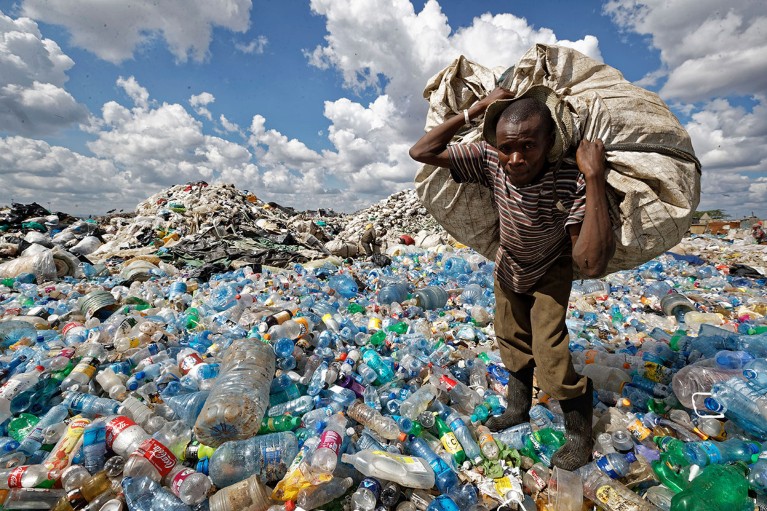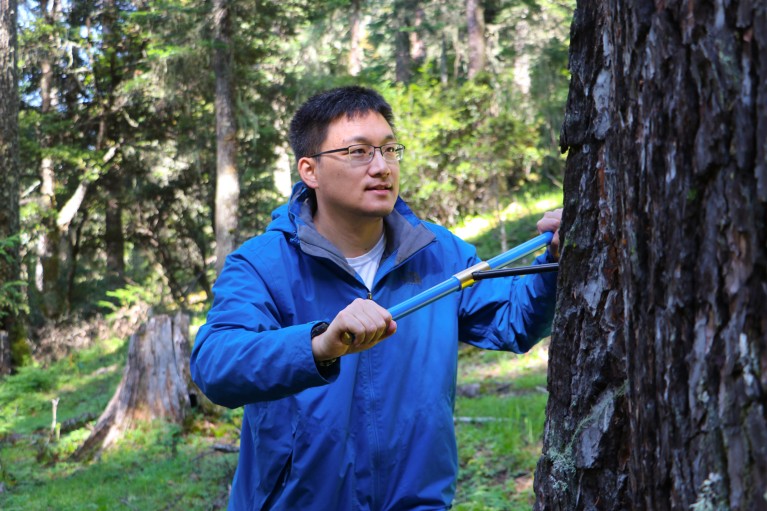[ad_1]
Hello Nature readers, would you like to get this Briefing in your inbox free every day? Sign up here

Credit: Ben Curtis/AP/Shutterstock
This week, delegates from more than 150 countries are expected to meet in Uruguay to begin negotiations for a historic global agreement to end plastic pollution. Negotiators will have the daunting task of devising and agreeing to rules and strategies ahead of finalizing a legally binding treaty by the end of 2024. Treaty negotiators will have to deal with competing opinions about how to resolve pollution, increase recycling and phase out chemicals in plastic that are known to harm human health.
The World Health Organization (WHO) has introduced a new preferred term for the disease caused by the monkeypox virus: mpox. The virus was named in 1958, before current best practices were adopted to minimize racist or stigmatizing effects. The virus itself remains unchanged — the International Committee on Taxonomy of Viruses has so far decided to keep the original name to maintain the continuity of the scientific literature. The two branches of the monkeypox virus have already been widely re-dubbed: the former Congo Basin (Central African) clade as clade I and the West African clade as clade II.
Low-frequency bass beats make people on the dance floor move more — even though the frequencies are inaudible. Researchers strapped motion-capture headbands onto people attending a gig by electronic music duo Orphx at McMaster University in Hamilton, Canada. When scientists switched on very-low-frequency (VLF) speakers, dancers moved more vigorously. But people couldn’t consciously identify when the VLF beats were playing.
The Naked Scientists | 5 min read or 6 min listen
Reference: Current Biology paper
Features & opinion
As the world prepared for a landmark biodiversity conference that was meant to take place in Kunming, China, in 2020, scientists prepared a sweeping appraisal of life on Earth and what it means to people. Its findings were stark: we are driving one million species to extinction and eroding the foundations of our lives and livelihoods.
The long-delayed gathering — known as the 15th Conference of the Parties to the Convention on Biodiversity, or COP15 — will finally take place in Montreal, Canada, starting next week. But the draft agreement is full of unanswered questions, writes ecologist Sandra Díaz, who co-chaired the panel, called IPBES, that produced the report. “Because the framework can be enshrined only by consensus, too many objections can lead to too much compromise,” argues Díaz. “To avert failure, we exhort the governments gathering in Montreal to be brave, long-sighted and open-hearted, and to produce a visionary, ambitious biodiversity framework, grounded in knowledge.”
Andrew Robinson’s pick of the top five science books to read this week includes an enchanting book about the houseguests of ant colonies and an account of the ‘orphan’ diseases that have been abandoned by the pharmaceutical industry.
A group of researchers studying the inner lives of farm animals have set themselves the challenge of treating their subjects like people. “They have their own desires, and their own wants and preferences and needs, and their own inner lives — the same way that human people do,” said Lauri Torgerson-White, the director of research at Farm Sanctuary, a refuge for agricultural animals such as chickens and pigs. But conducting animal research on a voluntary basis is not easy: it took three weeks to present one experiment gently enough to tempt eight chickens to take part.
The New York Times | 10 min read
Where I work

Chenxi Xu is a palaeoclimatologist at the Institute for Geology and Geophysics at the Chinese Academy of Sciences in Beijing.Credit: Junbo Ren
Palaeoclimatologist Chenxi Xu traces the sources of water in annual growth rings to identify periods of heavy rainfall or drought over centuries. “We can learn so much from trees about how the climate is changing,” he says. “So far, I have built a 700-year record of droughts in Southwest China. Before global warming started in the mid-nineteenth century, droughts were very similar to each other. But once the planet started to warm, notably in the past 50 years, there have been bigger and more-frequent droughts.” (Nature | 3 min read)
[ad_2]
Source link

